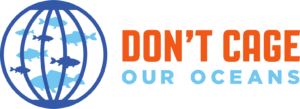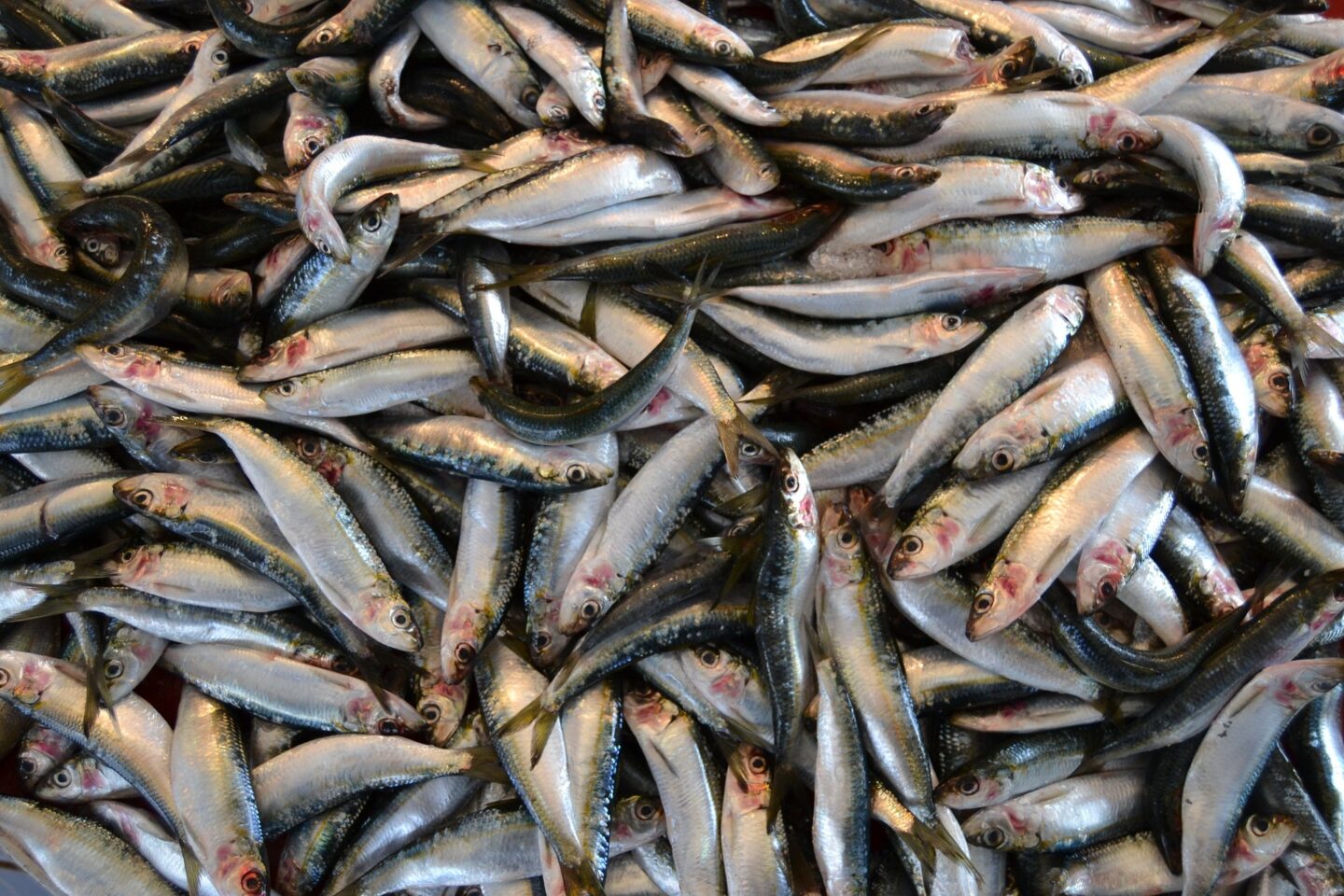For years, the public has been relentlessly fed the claim that farmed fish is the “sustainable” protein of the future, a message bankrolled by powerful aquaculture lobbies. But the real story behind this bluewashing? The world’s fish farming supply chain is wreaking havoc on West African shores: fueling ecosystem collapse, crushing food sovereignty, and wiping out people’s livelihoods.
The global fishmeal, or fishfeed, industry depends heavily on wild fish, which gets processed into feed for farmed species like sea bass and salmon. Industrial operations harvest millions of small forage fish, then grind them with farmed soy, wheat, and other additives. Exporters ship this feed to stadium-sized fish factories in Europe and Asia. Eventually, the farmed fish make it to supermarkets across Europe, Asia, and North America.
It can take up to 5 pounds of wild fish to produce just 1 pound of farmed salmon or sea bass. This astounding equation is wiping out key food sources in Senegal, The Gambia, and Mauritania. It is gutting their coastal economies — especially the jobs of women who process and sell these fish.
The exploitative fishmeal trade has been making a big splash this month in the news, with recent coverage in Forbes, The Guardian, and DeSmog:
- May 2025: A joint investigation by The Guardian and DeSmog traced the fishmeal supply chain from Senegal’s shores to supermarkets in the UK. They exposed a glaring reality: the colorful fillets on many people’s plates come at the cost of West Africa’s food security and marine life.
- May 2025: A Forbes article spotlighted a new report from the $80 trillion-backed FAIRR investor network, which warns about the economic and ecological risks of aquaculture fishfeed
Here’s a recap of these high-profile stories:
Forbes: Feeding the Future or Eating the Ocean?
The salmon farming industry likes to brand itself as climate-smart and sustainable, but a new report from the FAIRR Initiative tells us otherwise. The industry depends heavily on fishmeal and fish oil (FMFO) made from wild-caught fish, despite warnings that 90 percent of global fisheries are already at or beyond sustainable limits. The Forbes article explains that companies claim to be shifting to alternatives like algae and insect protein, but adoption is minimal and progress is slow.
Meanwhile, salmon producers are pushing for 40 percent growth by 2033 — growth that’s incompatible with a shrinking supply of feed. This isn’t just an environmental problem; it’s a financial liability, with volatile feed prices threatening profit margins. FAIRR warns that without concrete targets to reduce wild fish use, the industry is setting itself — and the planet — up for failure.
Dive in here to get the full story in Forbes
(pay wall after 4 free articles monthly)
The Guardian and DeSmog: How UK Supermarkets Fuel Overfishing in Senegal
A joint, two-year investigation by The Guardian and DeSmog followed the fishmeal trail from Senegal to Turkey to the UK — and uncovered a disturbing picture. Small, edible fish central to Senegalese diets are being siphoned off by multinational factories to produce feed for farmed sea bass. Eventually, these farmed fish make their way to British supermarkets.
Women fish workers are losing their livelihoods, local fish stocks are collapsing, and entire coastal communities are being pushed into crisis — all so that major retailers can stock a farmed product they misleadingly label as “responsibly sourced.”
The DeSmog and Guardian investigation focused primarily on Senegal, but it also notes that the fishmeal industry has expanded throughout West Africa, with factories in The Gambia and Mauritania playing major roles.
Dive into The Guardian and DeSmog to get the full stories!
What happens when the fish run out?
The bottom line is this: The fish on wealthy nations’ plates is coming at the expense of nutrition, economies, and ecosystems in places like Senegal and The Gambia. It’s an imperialist set-up that converts protein in the Global South, or Majority World, into protein for the Global North, or Minority World.
Eventually, this collapse is going to catch up with the global farmed fish supply and your dinner plate. It is based on the delusion that you can build food security on finite (and exploited) marine resources. Meanwhile, the farmed fish that Westerners are sold as “sustainable” and “healthy” are loaded with contaminants and lack the nutritional value of wild fish. Just ask us here at Don’t Cage Our Oceans, a program of NAMA!
Photo of anchovies by sezbulut35 on Pixabay

